Considering a shift to hydroponics? Understand the benefits of growing in a hydroponics system through this focused exploration. Efficient space use, substantial water conservation, and boosted crop yields are not just promises but realities of hydroponic farming. This article strips away the fluff and dives into the practical advantages that make hydroponics an appealing and sustainable agriculture choice for many growers.
Hydroponic systems enable efficient use of space and resources, promote faster plant growth, and allow for year-round production with higher crop yields compared to traditional farming.
Water conservation is key in hydroponics, achieved through techniques such as recirculating nutrient solutions and reduced evaporation, which significantly lessen the impact on freshwater resources.
Hydroponic farming is economically viable in the long term due to its potential for higher financial gains, reduced labour costs, and a growing market demand for hydroponically grown produce.
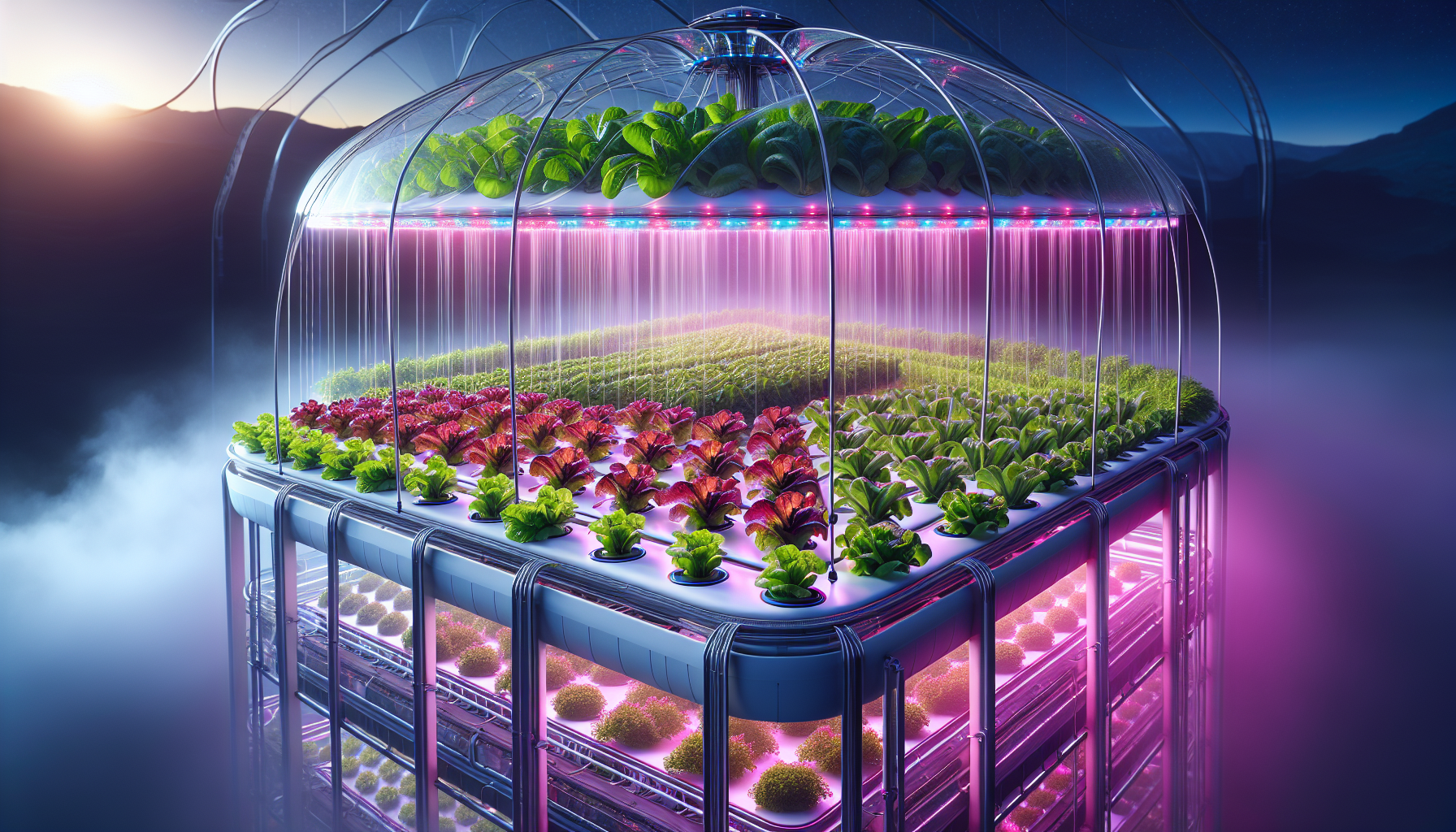
While hydroponic farming offers a unique solution to many of the challenges faced by traditional farming methods, it is important to consider the disadvantages of hydroponics as well. Some of the benefits of hydroponic farming include:
Space maximization
Resource optimization
Reduced water usage
Elimination of soil-borne diseases
Year-round production
Higher crop yields
Hydroponic systems, including the increasingly popular hydroponics system, are revolutionizing the way we approach farming, making hydroponic farms more common for growing hydroponic plants.
You might be wondering, what’s the operational mechanism behind these systems and their efficiency?
In conventional farming, vast tracts of land are needed to accommodate the expansive root systems of plants. Hydroponic farming, on the other hand, allows for more plants to be grown in small spaces, essentially maximizing space efficiency. With methods such as vertical farming and the use of modular designs, hydroponic farming dramatically increases plant density, making it a viable solution for urban farming.
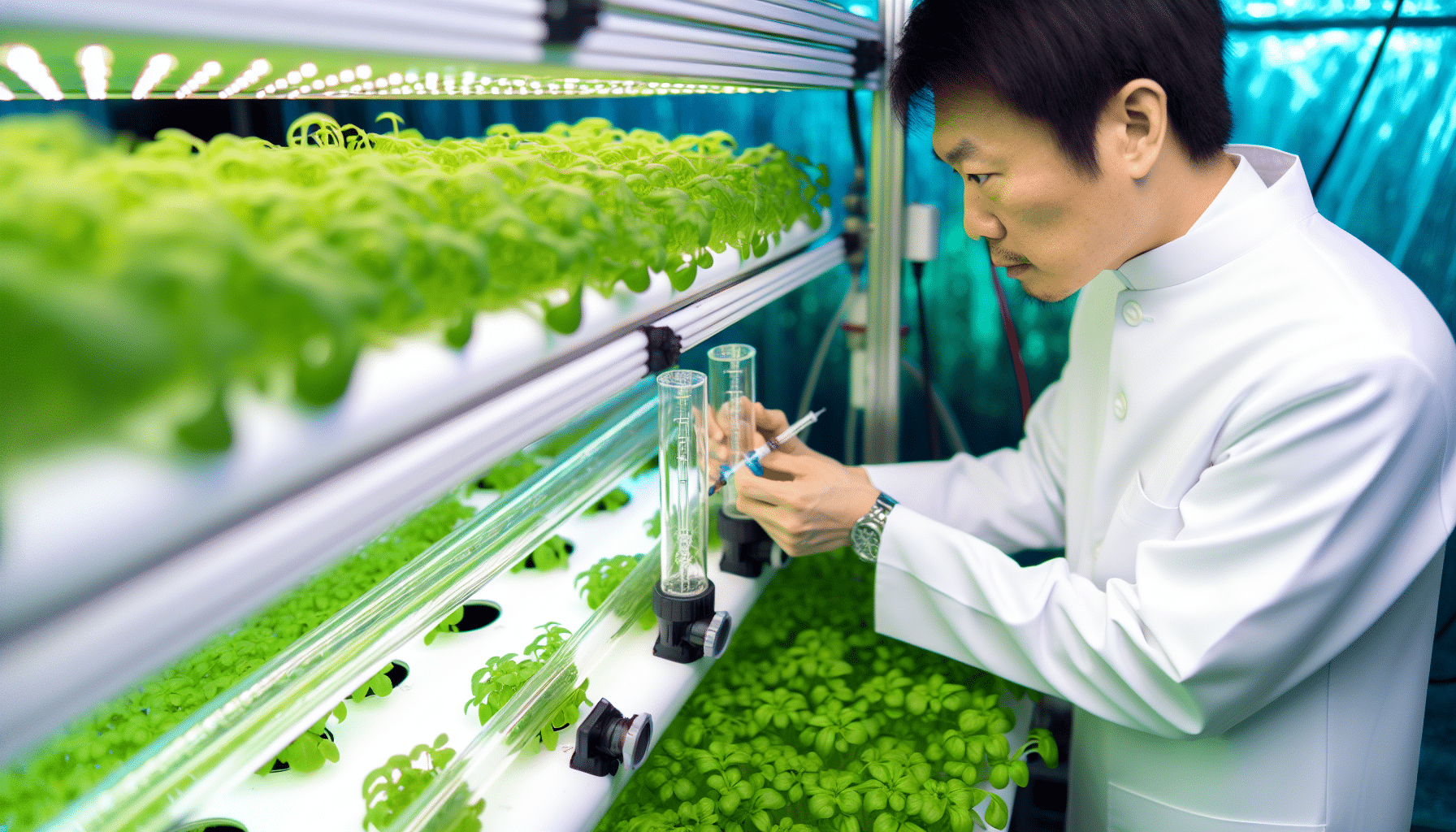
Water scarcity is a growing concern worldwide, and the agriculture industry is one of the largest consumers of water. Hydroponic systems, with their ability to recirculate nutrient solutions, significantly enhance water use efficiency. They also allow for meticulous control and monitoring of water use and nutrient levels, ensuring that plants receive precisely what they need for optimal growth.
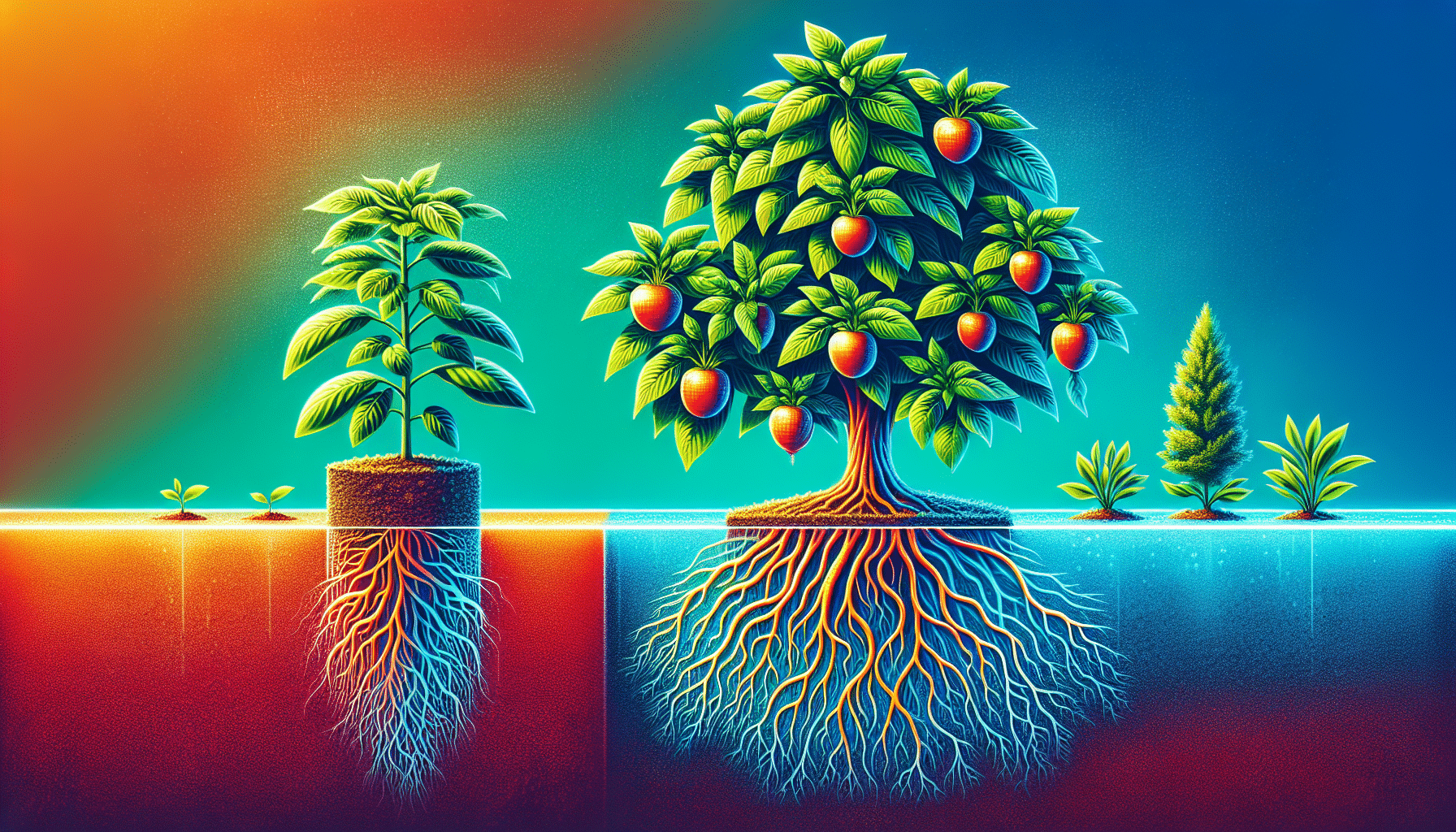
One of the most exciting advantages of hydroponics is the enhanced growth rates of plants. Hydroponic systems promote faster plant growth, with rates 30-50 per cent higher than traditional soil-based methods. This is attributed to:
The direct uptake of nutrients in the water leads to accelerated development
Plants receive the perfect amount of nutrients
Plants experiencing less stress from environmental factors
This accelerated growth rate leads to higher yields and faster crop rotations, making hydroponics a game-changer in the agriculture industry.
Also Read:
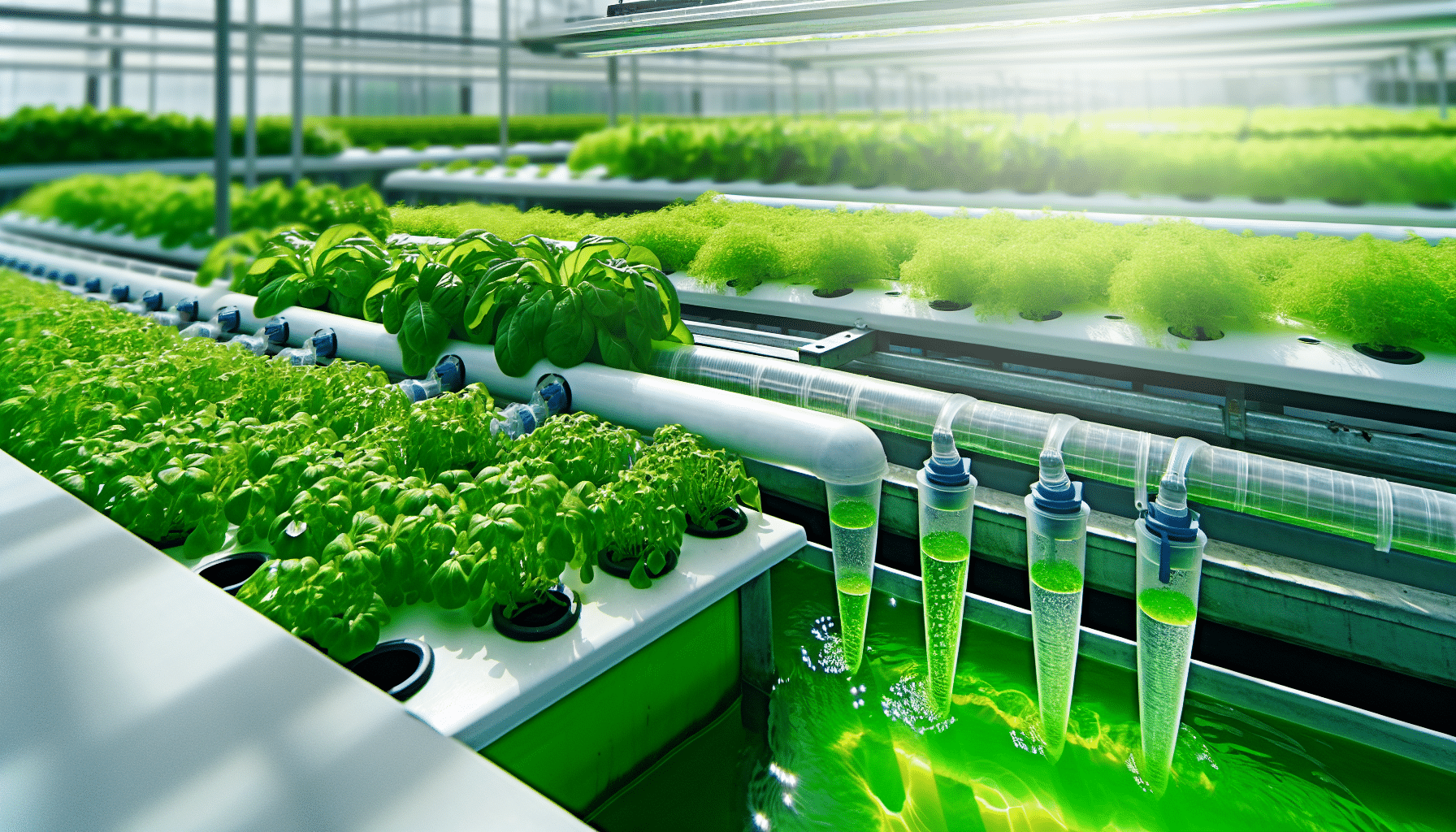
Water is an invaluable resource, and conserving it is a top priority. Hydroponics plays a significant role in water conservation by employing various techniques such as recirculating nutrient solutions and reducing evaporation.
You may ask, what’s the working principle of these techniques and their influence on freshwater resources?
Recirculating hydroponic systems are a prime example of water conservation in action. By reusing nutrient solutions, these systems reduce water usage and prevent the release of fertilizers into wastewater systems. Consistent monitoring and adjustments to the nutrient solution ensure that plants receive the right nutrients, contributing to healthier and more sustainable growth.
In traditional farming, a significant amount of water is lost through evaporation. Hydroponic systems, particularly those in indoor environments, can significantly reduce evaporation by covering the growing medium with an evaporation-reducing barrier. This not only conserves water but also limits the depletion of soil moisture, making hydroponics a more sustainable option.
The impact of hydroponics on freshwater resources is significant. By reducing water consumption and recycling nutrient solutions, hydroponics alleviates pressure on groundwater and other water resources.
Moreover, the use of treated wastewater in hydroponic systems allows for the reuse of water and nutrients, further conserving freshwater sources.
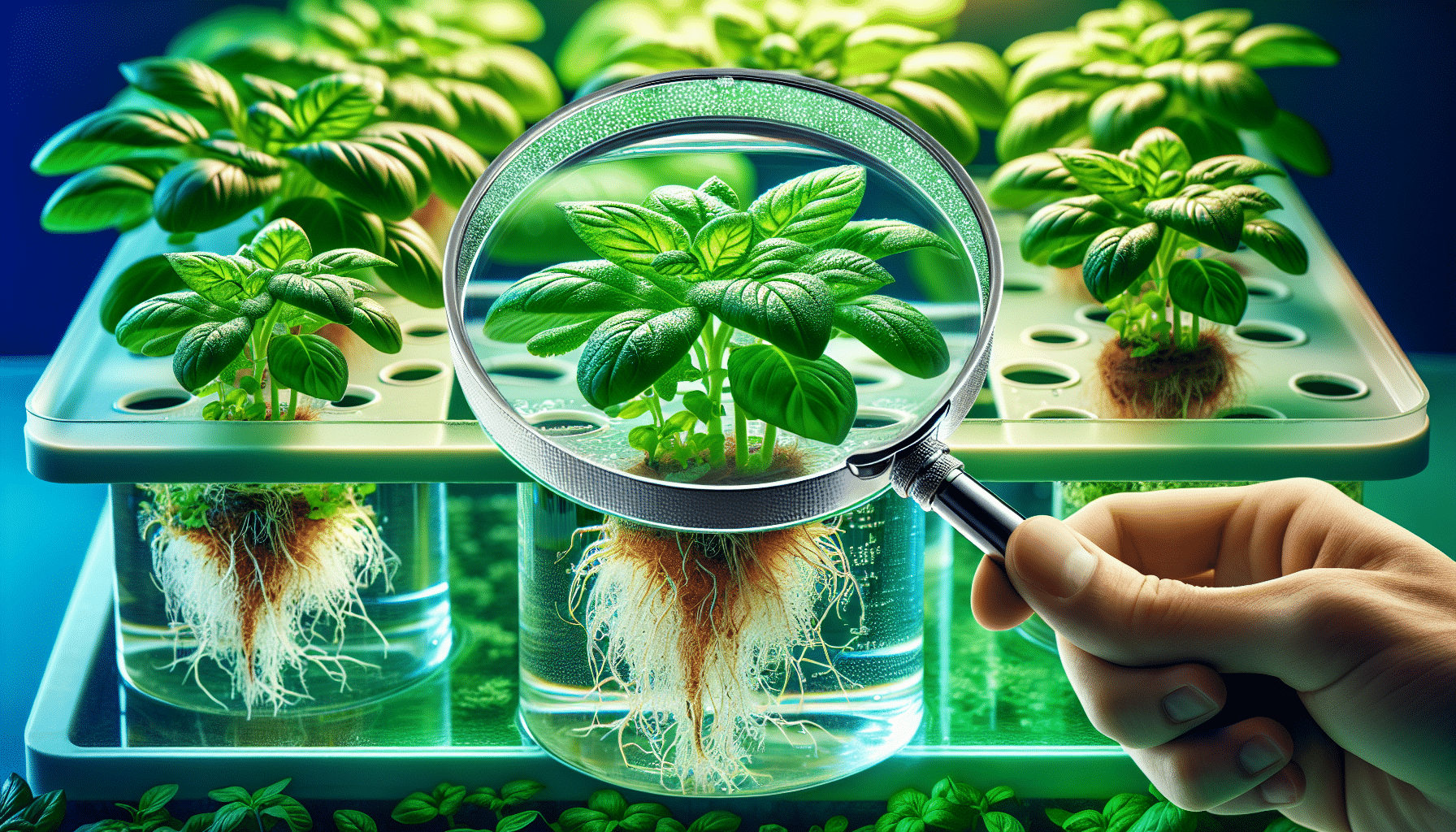
Hydroponic systems not only conserve resources but also promote plant health. By preventing soil-borne diseases, ensuring precise nutrient management, and reducing chemical usage, hydroponics contribute to healthier and more robust plant growth.
You might question, how these systems accomplish these results.
Eliminating soil as a growing medium is one of the primary ways hydroponic systems prevent soil-borne diseases. Without soil, plant roots are not subjected to the typical vectors for pests and diseases, reducing the need for harmful chemical treatments.
Moreover, the use of in-line UV filters and carbon filters ensures that the essential nutrients in the nutrient solutions remain sterile, further preventing the development of diseases.
Another advantage of hydroponic systems is their ability to manage nutrients precisely. By controlling the pH and electrical conductivity (EC) of the nutrient solution, these systems ensure optimal nutrient availability and absorption. Regular monitoring and adjustments to the nutrient solution cater to the specific nutritional requirements of the plants, promoting healthier growth.
In traditional farming, pesticides and other chemicals are often used to combat pests and diseases. However, hydroponic farming significantly reduces the need for these chemical interventions. The controlled environments of hydroponics lead to less frequent pest problems, minimizing the need for regular pesticide application.
This not only promotes healthier plant growth but also contributes to a safer and more sustainable food production process.
Hydroponic farming offers numerous yield benefits, making it an attractive option for farmers and growers. By enabling higher crop production in small spaces, facilitating year-round growth, and streamlining harvesting processes, hydroponic systems promise a fruitful harvest.
One might wonder, what are these precise benefits and their contribution to the comprehensive efficiency of hydroponics?
One of the major advantages of hydroponic farming is its ability to produce higher yields in small spaces. Hydroponic systems enable plants to be grown nearby by delivering a nutrient-charged solution directly to the root zone. This helps prevent competition for root space, allowing for more efficient use of the growing area. This results in a higher plant density, which in turn leads to increased yields, especially in urban farming scenarios.
Seasonal constraints are a common challenge in traditional farming. However, hydroponic systems overcome this challenge by enabling year-round crop production. By controlling indoor environments, these systems can produce crops throughout every season of the year, ensuring a steady supply regardless of external weather conditions.
This ability not only increases revenue but also contributes to the cost-effectiveness of hydroponic farming in the long term.
The efficiency of hydroponic systems extends to the harvesting process as well. By elevating plants and utilizing modular designs, these systems facilitate efficient harvesting.
Moreover, the seamless transitions between crop cycles, with no downtime required post-harvest before beginning a new planting, further bolsters the overall efficiency of the harvesting process.
In an era where sustainability is a key concern, hydroponic farming offers significant environmental benefits. From mitigating soil degradation to providing climate control for sustainable growth and adapting to climate change, hydroponics is truly at the forefront of sustainable agriculture.
You could be curious about the specific details of these environmental benefits, including their advantages and disadvantages.
Soil degradation and soil erosion are significant issues in traditional farming. Soil-based farming, being a common practice, contributes to these issues. Hydroponics, by eliminating the need for soil, helps mitigate these problems. By allowing for agriculture in areas with severe soil degradation, hydroponics offers a sustainable solution for areas where traditional farming is no longer feasible.
Climate control is another environmental benefits of hydroponics farming. By creating specific micro-climates optimized for various crops, hydroponic systems reduce dependency on fossil fuels and greenhouse gas emissions.
This control over the growing environment contributes to enhanced health for growing plants, including growing plants indoors, and reduced environmental impact for all the plants.
Climate change presents significant challenges to traditional farming. Hydroponics, with its controlled environments and resilient agricultural capabilities, provides a solution. By enabling local food production in climates normally challenging for agriculture, hydroponics offers a resilient response to climatic changes such as irregular rainfall and extreme weather events.
In addition to its environmental benefits hydroponics farming also offers solutions to many challenges associated with traditional farming. From avoiding arable land limitations to reducing agricultural labour and enhancing food safety, hydroponics provides a viable alternative to traditional farming methods. Let’s unpack the ways these challenges are tackled.
One of the major challenges of traditional farming, which is a form of traditional agriculture, is the need for vast, arable lands. Hydroponic farming addresses this challenge by enabling the repurposing of abandoned and unused urban spaces for food production. This bypasses the need for large fields and makes efficient use of limited space.
Reducing agricultural labour is another significant advantage of hydroponic farming. By leveraging automated systems, hydroponic farming minimizes manual labour, enhances crop health, and boosts yields. This not only reduces labour costs but also minimizes human error, leading to more consistent and reliable crop production.
Hydroponic farming also contributes to enhanced food safety. By growing crops in controlled environments, hydroponic systems:
Reduce the exposure of crops to contamination threats
Ensure a higher safety profile
Provide a controlled environment
Implement rigorous safety protocols
Conduct comprehensive staff training
All of these factors result in cleaner, safer produce.
While the benefits of hydroponic farming are plentiful, it’s also important to consider the economic aspects. From understanding the initial investment to recognizing the long-term financial gains and market demand, a comprehensive cost-benefit analysis can provide a clearer picture of the economic implications of hydroponic farming.
Setting up a hydroponic farm requires a significant initial investment. From land and building expenses to equipment and training costs, understanding these initial costs is essential for anyone considering hydroponic farming. However, keep in mind, that these costs can significantly fluctuate based on the size and intricacy of the hydroponic system being established.
While the initial investment may be substantial, the long-term financial gains of hydroponic farming make it a worthwhile endeavour. Higher crop yields, efficient use of resources, and the ability to grow crops year-round contribute to increased revenue and long-term cost savings.
Additionally, the growing market demand for hydroponically grown produce presents significant opportunities for financial growth as more people look to grow plants using this method.
The market demand for hydroponically grown produce is on the rise. With an increasing consumer preference for organic, pesticide-free produce, hydroponic farming is well-positioned to meet this growing demand.
Furthermore, the global hydroponics market is expected to experience substantial growth in the coming years, making hydroponic farming a promising and lucrative agricultural alternative.
From boosting plant growth to conserving valuable resources, hydroponic farming offers a plethora of benefits over traditional farming methods. With its potential to transform urban spaces into productive agricultural sites, reduce labour costs, and enhance food safety, hydroponics is undeniably a game-changer in the world of agriculture. As we continue to face challenges such as climate change, water scarcity, and soil degradation, the shift towards more sustainable and efficient farming methods like hydroponics is not just a trend, but a necessity.
Hydroponic systems offer benefits such as up to 90% less water usage and enhanced plant yields due to densely spaced plants.
Hydroponic farming benefits people who do not have a large space, such as those living in apartments or without a garden, as it can be used in small-scale settings. This method allows for successful plant growth in limited space.
Hydroponic farming conserves water by recirculating nutrient solutions and reducing evaporation, using up to 90% less water than traditional farming.
No, hydroponic farming does not require a lot of space and can be done in small areas, even in urban environments, using vertical farming and modular designs to maximize plant density and space efficiency.
Grow 100 planting sites, monitor ph levels, water temperature, water levels, and control light and water cycles.
© Copyright 2024 Nutraponics. All Rights Reserved.